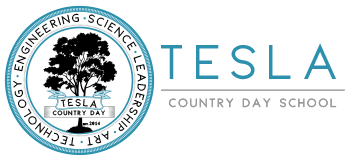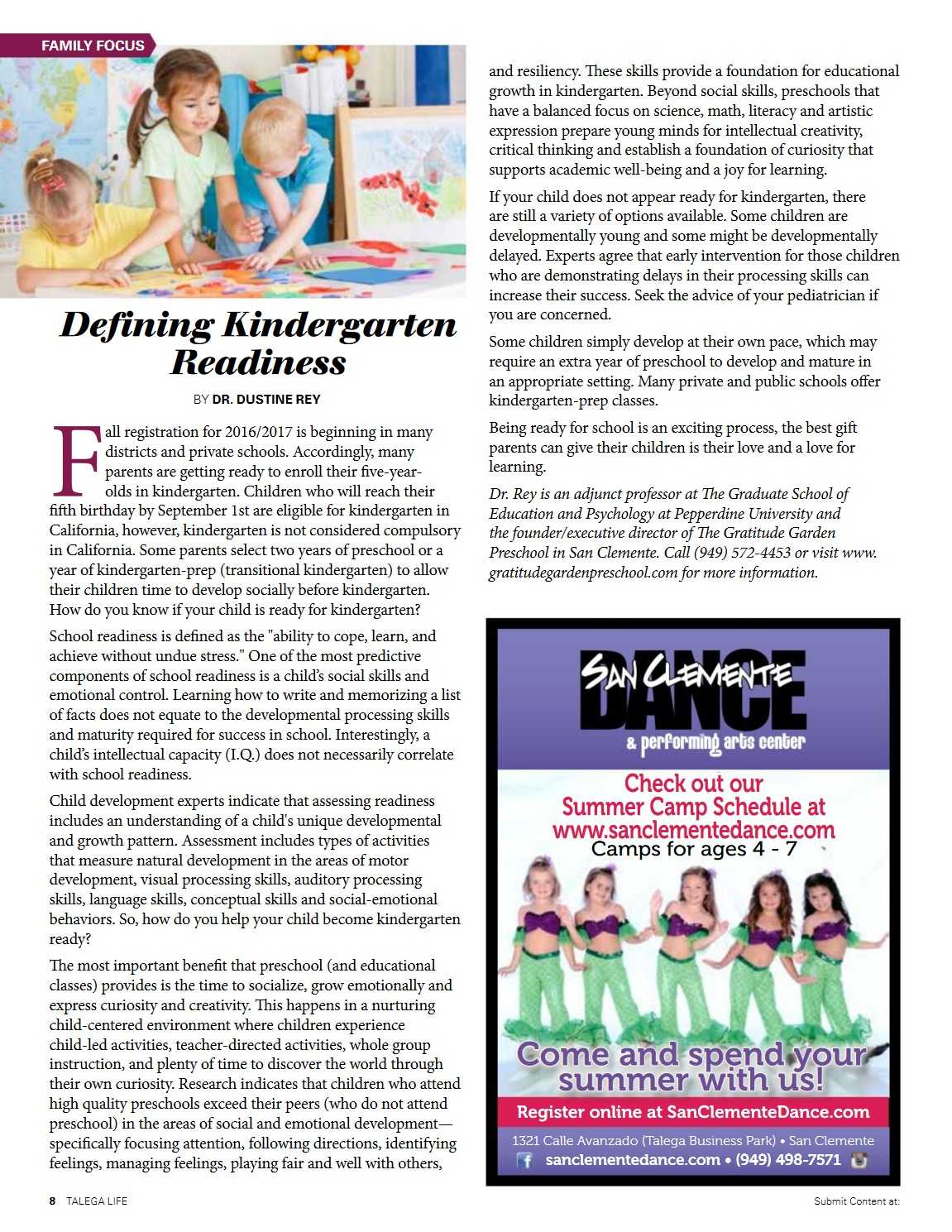Fall registration for 2016/2017 is beginning in many districts and private schools. Accordingly, many parents are getting ready to enroll their five-year-olds in kindergarten. Children who will reach their fifth birthday by September 1st are eligible for kindergarten in California, however, kindergarten is not considered compulsory in California. Some parents select two years of preschool or a year of kindergarten-prep (transitional kindergarten) to allow their children time to develop socially before kindergarten. How do you know if your child is ready for kindergarten?
School readiness is defined as the “ability to cope, learn, and achieve without undue stress.” One of the most predictive components of school readiness is a child’s social skills and emotional control. Learning how to write and memorizing a list of facts does not equate to the developmental processing skills and maturity required for success in school. Interestingly, a child’s intellectual capacity (I.Q.) does not necessarily correlate with school readiness.
Child development experts indicate that assessing readiness includes an understanding of a child’s unique development and growth pattern. Assessment includes types of activities that measure natural development in the areas of motor development, visual processing skills, auditory processing skills, language skills, conceptual skills, and social-emotional behaviors. So, how do you help your child become kindergarten ready?
The most important benefit that preschool (and educational classes) provides is the time to socialize, grow emotionally, and express curiosity and creativity. This happens in a nurturing child-centered environment where children experience child-lead activities, teacher-directed activities, whole group instruction, and plenty of time to discovery the world through their own curiosity. Research indicates that children who attend high quality preschools exceed their peers (who do not attend preschool) in the areas of social and emotional development; specifically focusing attention, following directions, identifying feelings, managing feelings, playing fair and well with others and resiliency. These skills provide a foundation for educational growth in kindergarten. Beyond social skills, preschools that have a balanced focus on science, math, literacy, and artistic expression prepare young minds for intellectual creativity, critical thinking, and establish a foundation of curiosity that supports academic well-being and a joy for learning.
If your child does not appear ready for kindergarten there are a variety of options. Some children are developmentally young and some might be developmentally delayed. Experts agree that early intervention for those children who are demonstrating delays in their processing skills can increase their success. Seek the advice of your pediatrician if you are concerned.
Some children simply develop at their own pace, which may require an extra year of preschool to develop and mature in an appropriate setting. Many private and public schools offer kindergarten-prep classes. Being ready for school is an exciting process, the best gift parents can give their children is their love and a love for learning.

